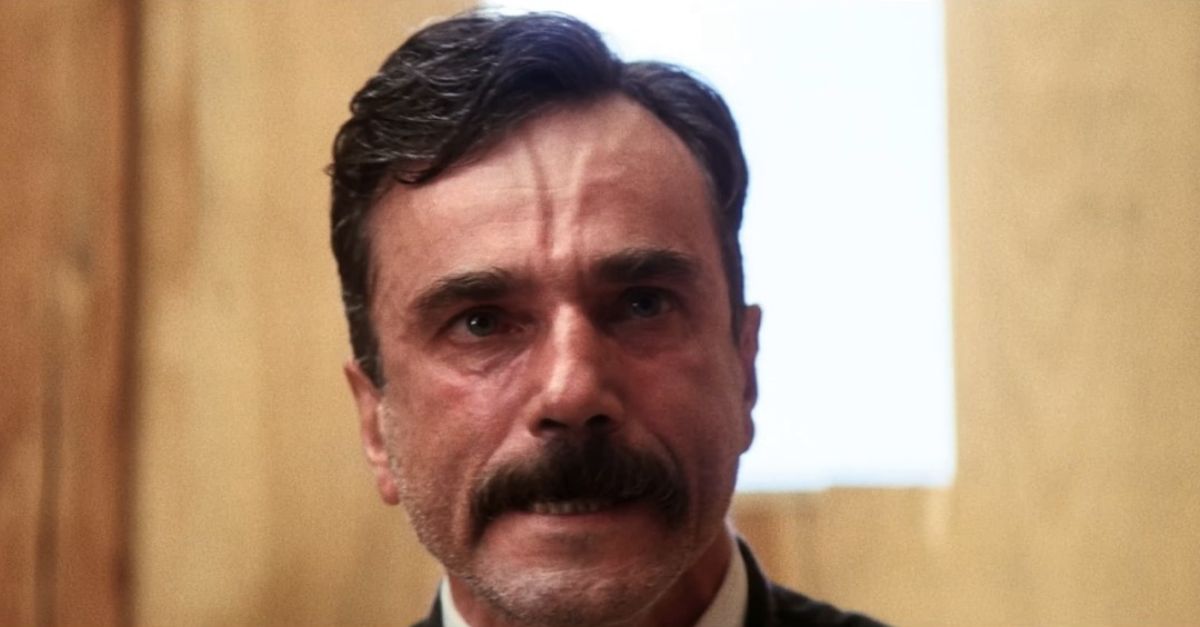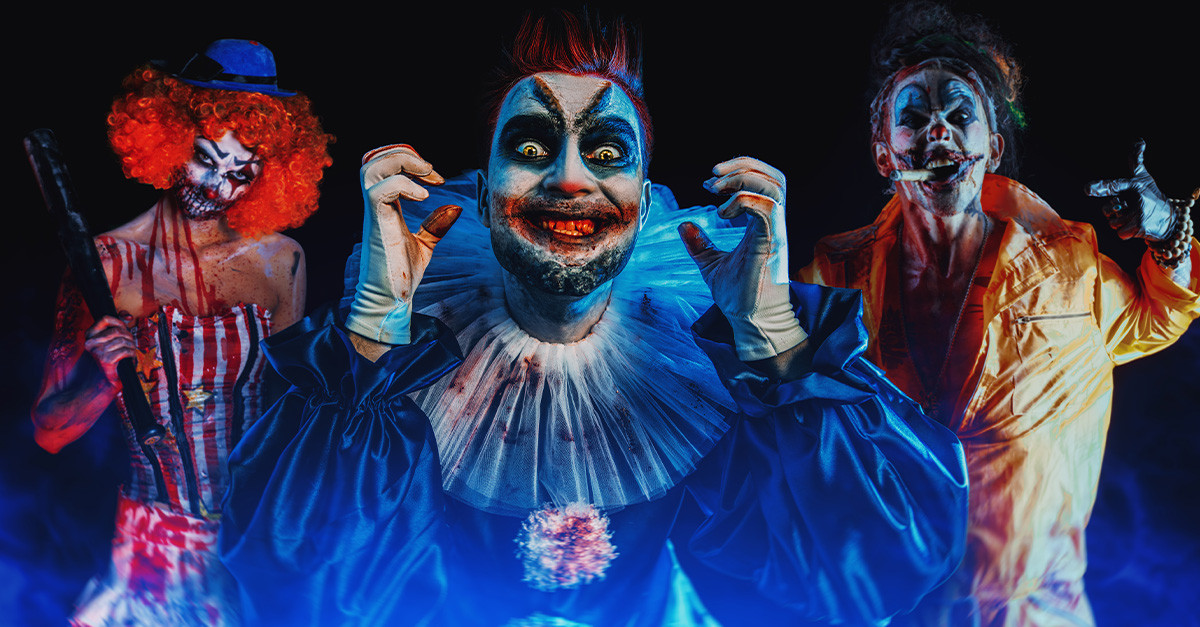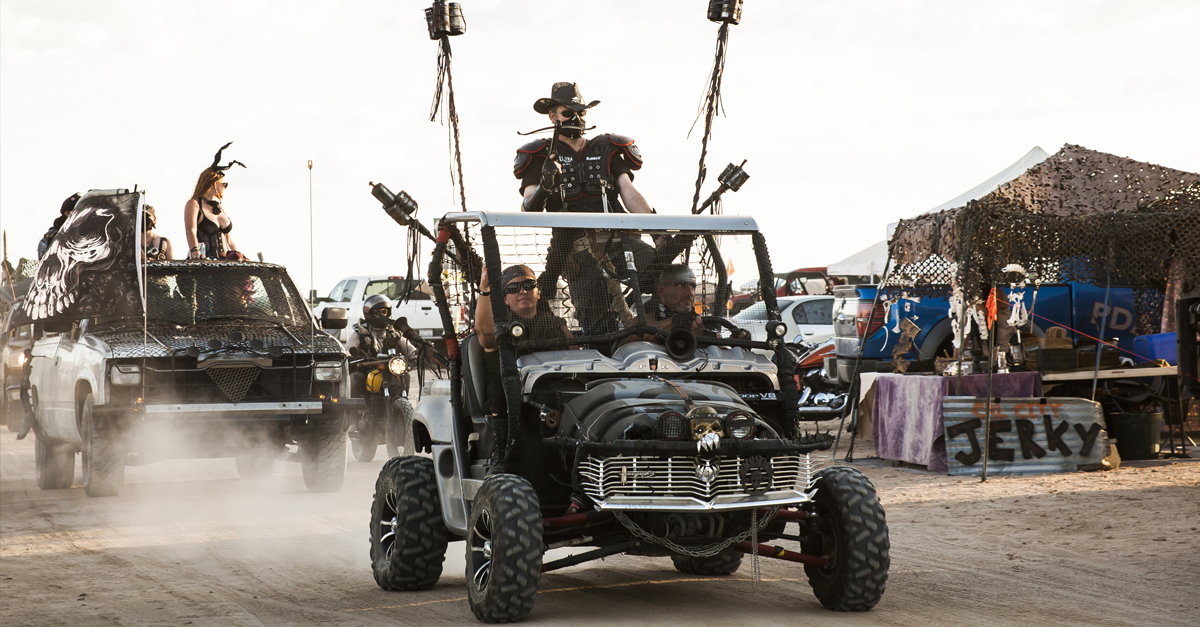Your Life Forever Altered
Once your name is called and you stand up to go get that Oscar, your career will never be the same. It’s a career-altering thunderbolt. These actors certainly showcase just how dramatic the career impact can be.

Matthew McConaughey
After bagging Best Actor for Dallas Buyers Club in 2014, McConaughey completely reinvented his screen persona by transitioning from lightweight romantic comedies to critically acclaimed dramatic roles. Seems McConaughey was on a roll because, in the same year, he gave us Interstellar.
 Dallas Buyers Club 2013 - Crying Scenes World School by World School
Dallas Buyers Club 2013 - Crying Scenes World School by World School
Charlize Theron
In 2004, Theron swooped the Best Actress win for Monster—a dramatic turning point. From there, Theron became an international action star, headlining films like Mad Max: Fury Road and Atomic Blonde with remarkable physical intensity.
 Monster (2003) Trailer HD | Charlize Theron | Christina Ricci by Film Trailer Channel
Monster (2003) Trailer HD | Charlize Theron | Christina Ricci by Film Trailer Channel
Halle Berry
Berry’s historic Best Actress win for Monster’s Ball opened unprecedented doors. Since then, she has been switching between intense dramas, superhero franchises, and science fiction. Halle Berry is what you call a “Jack of all trades”.
 Monster's Ball (2001) - That's My Baby Scene (8/11) | Movieclips by Movieclips
Monster's Ball (2001) - That's My Baby Scene (8/11) | Movieclips by Movieclips
Nicolas Cage
Winning Best Actor for Leaving Las Vegas in 1996, Cage became a hot commodity. This win made Hollywood producers select him increasingly for unconventional roles. His post-Oscar career became a masterclass in unpredictable character selection across multiple genres.
 LEAVING LAS VEGAS (1995) | Official Trailer | MGM by Amazon MGM Studios
LEAVING LAS VEGAS (1995) | Official Trailer | MGM by Amazon MGM Studios
Lupita Nyong’o
Ms. Nyong’o won an Oscar for her first film feature, 12 Years a Slave, and it launched her career into serious success. Nyong’o’s face is now present in drama, blockbuster franchises, and innovative horror—a remarkable versatility rarely seen in Hollywood’s competitive scene.
 12 YEARS A SLAVE: Soap by SearchlightPictures
12 YEARS A SLAVE: Soap by SearchlightPictures
Mahershala Ali
After winning the Supporting Actor Oscar, Ali strategically selected roles highlighting social complexity. The defining movies were Moonlight (2016) and Green Book (2018). He went from character actor to leading presence in films addressing profound societal narratives like True Detective.
 Green Book - Official Trailer [HD] by Universal Pictures
Green Book - Official Trailer [HD] by Universal Pictures
Hilary Swank
As a two-time Oscar winner for the Best Actress title for her roles in Boys Don’t Cry (1999) and Million Dollar Baby (2004), Swank consistently chose roles challenging societal perceptions. Her performances always pushed boundaries of gender, identity, and human experience.
 Million Dollar Baby: On the Ropes • Hilary Swank Clip • Produced by Gary Leva by Leva FilmWorks
Million Dollar Baby: On the Ropes • Hilary Swank Clip • Produced by Gary Leva by Leva FilmWorks
Jared Leto
Jared Leto has had many memorable roles, but one of his best is widely considered to be Rayon in Dallas Buyers Club (2013), where he played a transgender woman with AIDS. After that, he’s featured in about five movies, including Suicide Squad as the Joker.
 DALLAS BUYERS CLUB Official Clip: Just Promise Me by Focus Features
DALLAS BUYERS CLUB Official Clip: Just Promise Me by Focus Features
Jamie Foxx
Winning for Ray, Foxx showed the world his extraordinary range in both acting and singing. His performance was widely acclaimed, earning him the Academy Award for Best Actor. Foxx has since demonstrated remarkable versatility, seamlessly moving between various genres, dramatic roles, and action films.
 Ray: Ray goes blind HD CLIP by Binge Society
Ray: Ray goes blind HD CLIP by Binge Society
Viola Davis
Her Oscar win for her role in Fences (2016) represented more than personal achievement. Davis has since then become a force to reckon with on and off-screen. On-screen, she’s been part of huge blockbusters. Off-screen? Davis has also been involved in other projects through her production company, JuVee Productions.
Eddie Redmayne
Specializing in biographical roles, Redmayne was selected for characters representing influential historical and scientific figures like Stephen Hawking in The Theory of Everything from 2014. He’s also been part of other huge successes, and his acting has maintained intellectual depth with undeniable accuracy.
 The Theory of Everything (10/10) Movie CLIP - Look What We Made (2014) HD by Movieclips
The Theory of Everything (10/10) Movie CLIP - Look What We Made (2014) HD by Movieclips
Cate Blanchett
Cate Blanchett won her first Oscar for Best Supporting Actress for The Aviator (2004). The number two win was for Best Actress in Blue Jasmine (2013). After her wins, Blanchett’s career continued to flourish. She’s taken on a variety of demanding and diverse parts, both in film and on stage.
Forest Whitaker
Winning for The Last King of Scotland, Whitaker became a global storytelling ambassador. He has since then chosen roles addressing complex international narratives like The Butler (2013), Fruitvale Station (2013), Black Panther (2018), and the TV series The Good Doctor (2017–2020).
 The Last King of Scotland (1/3) Movie CLIP - Idi Speaks (2006) HD by Movieclips
The Last King of Scotland (1/3) Movie CLIP - Idi Speaks (2006) HD by Movieclips
Helen Mirren
Mirren’s Oscar-winning performance as Queen Elizabeth II in The Queen was impressive, but the success that came after has been increasingly impressive. Her post-Oscar roles keep challenging stereotypes about mature actors, as seen in pictures like Hitchcock (2012) and The Leisure Seeker (2017).
 The Queen (2006) Official Trailer - Helen Mirren Movie HD by Rotten Tomatoes Classic Trailers
The Queen (2006) Official Trailer - Helen Mirren Movie HD by Rotten Tomatoes Classic Trailers
Penélope Cruz
When Vicky Cristina Barcelona dropped in 2008, Cruz’s life took a turn for the better, especially because she was the first Spanish actress to receive an Academy Award. Her versatility keeps shining through all her movies post-Oscar, with 2011 Pirates of the Caribbean: On Stranger Tides in the mix.
 Music video Dedicated to Penelope Cruz ~ Vicky Cristina Barcelona by Nathalie Pottier
Music video Dedicated to Penelope Cruz ~ Vicky Cristina Barcelona by Nathalie Pottier
Daniel Day-Lewis
Known for complete character immersion with extraordinary preparation and psychological depth, Day-Lewis selected challenging roles. My Left Foot (1989) earned him his first Oscar, There Will Be Blood (2007) his second, Lincoln (2012) his third, and two got him nominations: Gangs of New York (2002) and Phantom Thread (2017).
 My Left Foot | 'Accidentally on Purpose' (HD) - Daniel Day-Lewis, Brenda Fricker | 1989 by Miramax
My Left Foot | 'Accidentally on Purpose' (HD) - Daniel Day-Lewis, Brenda Fricker | 1989 by Miramax
Meryl Streep
Streep is one for the record books with multiple Oscar wins under her belt—three wins, 21 nominations. Her career has been a masterclass in character transformation, where her performances exceed expectations scene after scene. With such a record-high number of nominations, there should be an award just for that.
 Kramer vs. Kramer (5/8) Movie CLIP - I'm His Mother (1979) HD by Movieclips
Kramer vs. Kramer (5/8) Movie CLIP - I'm His Mother (1979) HD by Movieclips
Leonardo DiCaprio
There was a time when the world kept asking, “When will DiCaprio carry an Oscar?” Well, when 2016 came, he bagged Best Actor for The Revenant. Post-Oscar, DiCaprio has produced and starred in several documentaries focused on climate change, such as Before the Flood and And We Go Green.
Natalie Portman
Natalie Portman bagged the Best Actress Oscar for playing Nina Sayers in Black Swan (2010). Her win was a culmination of her intellectual approach to acting, and it has led her to complex and psychologically demanding roles in movies like Jackie (2016) and Vox Lux (2018).
 Black Swan (2010) 4K HDR 60fps by Motion Picture Reel
Black Swan (2010) 4K HDR 60fps by Motion Picture Reel
Christian Bale
Bale is yet another actor who has become synonymous with extreme physical and mental transformations. After his award-winning picture The Fighter (2010), he’s also seen victory with pictures like The Big Short (2015), American Hustle (2013), Vice (2018), and Ford v Ferrari (2019).
 The Fighter #5 Movie CLIP - Mickey's Corner (2010) HD by Movieclips
The Fighter #5 Movie CLIP - Mickey's Corner (2010) HD by Movieclips
Rami Malek
Malek’s post-Oscar career has had him add pictures like The Little Things (2021), No Time to Die (2021), and the recent Oppenheimer (2023) to his docket. He seems to be climbing the ladder quite fast because he won Best Actor in Bohemian Rhapsody just a few years back in 2018.
Emma Stone
Stone’s 2016 Oscar win launched her into roles representing generational shifts and contemporary social dynamics. Her performance in La La Land (2016) as an aspiring actress moving through the complexities of love and ambition in Los Angeles resonated with audiences and critics alike.
 LA LA LAND scenes ( I'm Always Gonna Love You+the end) by geo kar
LA LA LAND scenes ( I'm Always Gonna Love You+the end) by geo kar
Frances McDormand
Post-Oscar, Frances McDormand has become a familiar face in roles that highlight authentic human experiences and challenge Hollywood’s conventional storytelling. Her performances often dove into the complexities of ordinary lives, bringing depth and nuance to her characters. Today, many celebrate her works in Olive Kitteridge and Women Talking.
 FARGO Best Frances McDormand Scenes Part 2 (1996) Coen Brothers by JoBlo Movie Clips
FARGO Best Frances McDormand Scenes Part 2 (1996) Coen Brothers by JoBlo Movie Clips
Sandra Bullock
Bullock’s Best Actress win for The Blind Side in 2010 marked a shift in her career from lighthearted romantic comedies to roles of emotional and narrative depth. Following her Oscar victory, she starred in Gravity, a physically and emotionally intense performance, and Bird Box, a high-concept thriller with conviction.
 The Blind Side #5 Movie CLIP - You Wanna Do What? (2009) HD by Movieclips
The Blind Side #5 Movie CLIP - You Wanna Do What? (2009) HD by Movieclips
Angelina Jolie
After taking home the Best Supporting Actress title for Girl, Interrupted in 2000, Jolie evolved from action-packed roles like Lara Croft: Tomb Raider to directing deeply humanistic stories. Jolie’s post-Oscar career blends artistry with activism, using cinema as a platform for meaningful storytelling.
 Crazy People And Ice Cream | Girl, Interrupted (Winona Ryder, Angelina Jolie) by Moving Pictures
Crazy People And Ice Cream | Girl, Interrupted (Winona Ryder, Angelina Jolie) by Moving Pictures









